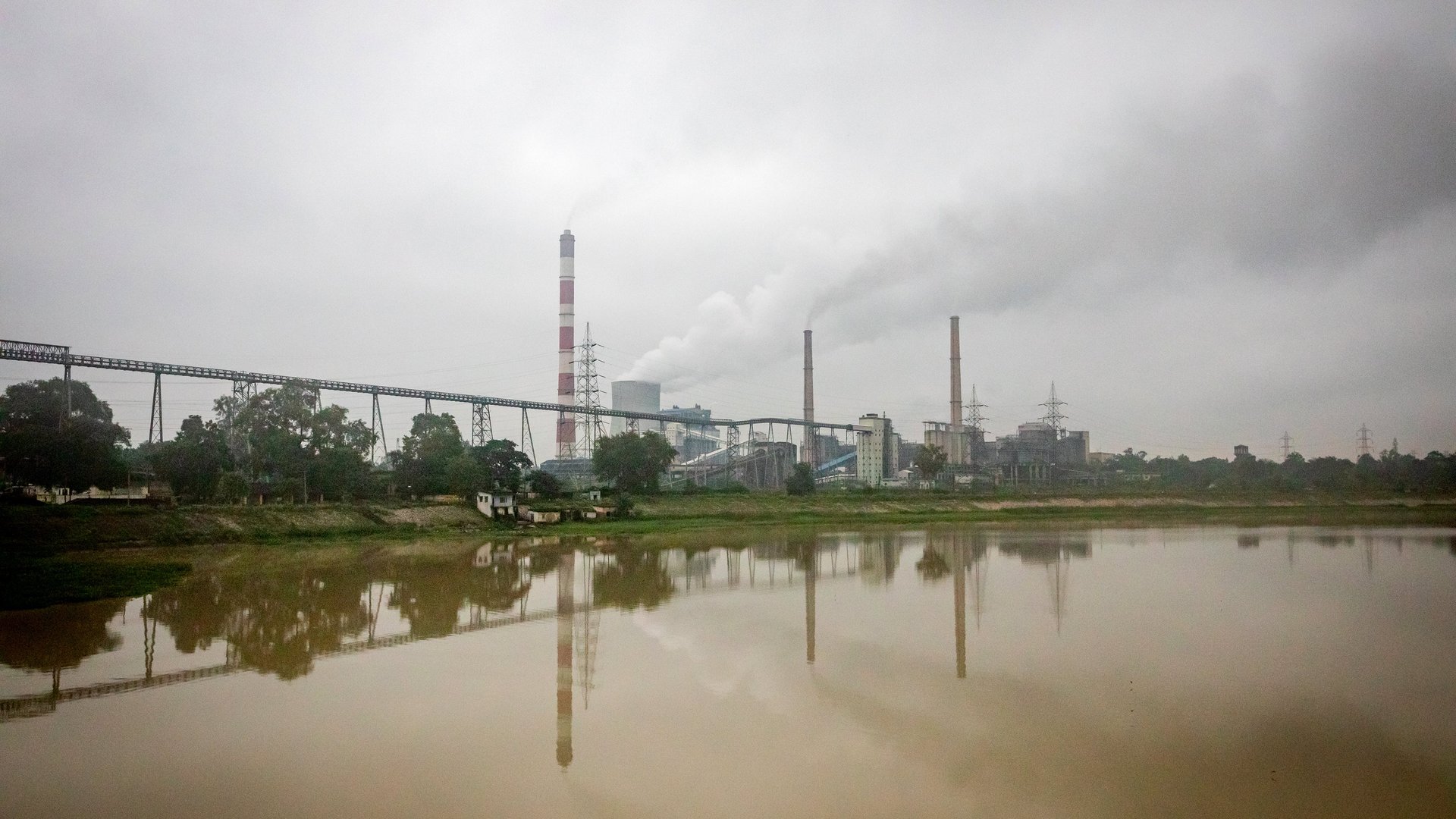The Race to Zero Emissions: rising divestment, climate apartheid, book deal
Some personal news: I’m writing a book on scaling climate solutions—inspired by the work I do for this newsletter. I’ll share reporting tidbits from across the world as I go along. But please do me a favor: forward this email to others who might be interested in the solutions lens to the climate crisis, or ask them to subscribe here.

Some personal news: I’m writing a book on scaling climate solutions—inspired by the work I do for this newsletter. I’ll share reporting tidbits from across the world as I go along. But please do me a favor: forward this email to others who might be interested in the solutions lens to the climate crisis, or ask them to subscribe here.
Here’s what happened over the past week that helped or harmed the world’s chances of cutting greenhouse-gas emissions to zero.

🔽 Decreases emissions
1️⃣ Two Indian states have said that they will not build new coal power plants: Chhattisgarh, which has the country’s third largest coal reserves, and Gujarat, which is home to some of India’s largest solar and wind farms.
2️⃣ The Paris climate agreement has resulted in a sharp rise (paywall) in the number of investors divesting from fossil fuel stocks. In 2014, investors with $52 billion under management had agreed to shed their carbon-heavy holdings. That group now controls more than $11 trillion in assets—with nearly 1,000 additional investors joining the divestment pledge after the agreement was signed in 2015.
3️⃣ The UN expects China to announce more ambitious goals at the upcoming climate summit in New York City. Speaking slots have been reserved for leaders of countries that will announce new emissions reduction targets or financial commitments to the UN Green Climate Fund. That has led Australia‘s prime minister to skip the event.
4️⃣ Brazil‘s senate approved the use of 1 billion reais ($245 million) to protect the Amazon. The money was recovered from an ongoing corruption scandal called Operation Car Wash.
5️⃣ Europe is likely to sell 1 million electric and plug-in hybrid cars in 2020 (paywall). The forecast is based on regulations that force European automakers to drastically lower the average CO2 emissions of their fleet or face large fines. Meanwhile, in California, sales of every type of vehicle were down in the first half of the year—except for battery-powered electric cars and hybrids.
Reporter’s notes

The chart below shows one of the reasons Indian states are starting to shun new coal power plants. The existing ones are generating much less electricity than their theoretical maximum capacity. That means, future demand for electricity could be satisfied by existing coal plants—or cheaper renewables. During our trip to India to report on the future of coal, we found a shift in the thinking of those who operate the dirty power plants. They are starting to think of how coal can play a role in a world where renewables are a bigger and bigger part of the mix. Their solution? Ramping up coal power as and when solar/wind aren’t able to generate enough electricity. The first such plant is now operational in Australia, and soon India might have one too.
0️⃣ Net-zero (for now)
1️⃣ For every $1 spent on adapting to the impact of climate change, the global economy could gain as much as $4, according to a new report.
2️⃣ “Climate apartheid will only lead to more tragedies in the Mediterranean,” says Carola Rackete, a German ship captain whose vessel rescued 40 people from the Mediterranean and took them to safety in Italy. “What I have seen from my ship is just a glimpse of what the future holds for millions if we don’t act now.”
3️⃣ “A changing climate demands a change in curriculum,” says a UK science teacher, who recently took a UN accredited course on climate change. The course was set up by Melanie Harwood, who re-mortgaged her home to launch the training service, which uses repackaged UN material.
4️⃣ Extinction Rebellion, a grassroots group that uses civil disobedience to focus bring attention to the inaction on climate change, claims it now has more than 100,000 members. Just in the past two weeks, the group has organized protests in Manchester, Heathrow, and Preston.
Book review
In 2016, Indian author Amitav Ghosh wrote The Great Derangement, in which he explored the double failure on climate change—it isn’t just our institutions that have been feeble and inactive; so have our writers and artists. This year, Ghosh is at it again. Gun Island is a gripping read that has climate change and its many effects as the spine of the narrative. I highly recommend it!

🔼 Increases emissions
1️⃣ The US president Donald Trump has given another silly excuse to roll back environmental regulations on energy-efficient lightbulbs. Counterpoint: India’s mass rollout of LED bulbs has led to an annual saving of as much as $5 billion in electricity and infrastructure bills.
2️⃣ Yemen’s Houthi rebels have attacked the world’s largest oil processing facility in Saudi Arabia. A thick plume of smoke was visible for hours, including from space. Oil prices jumped on the news, even though Saudi Arabia and the International Energy Agency said that the market is well supplied.
3️⃣ Wildfires are raging in Indonesia, Australia, the US, and the Amazon.
4️⃣ At the 2014 UN climate summit, more than 200 governments, national and sub-national, agreed to cut the rate of deforestation in half by 2020, and to halt it by 2030. A new assessment by a 25-member coalition declared that the effort has failed and the world is losing the battle against deforestation.
5️⃣ Despite a slowdown in economic growth, China‘s emissions are estimated to have increased by 4%. Both coal and cement consumption are below peak level, but oil and gas consumption continue to set new records.
Stats to remember
As of Sep. 14, the concentration of carbon dioxide in the atmosphere was 408.12 ppm. A year ago, the level was 405.40 ppm.
If you’d like to support my work, you can subscribe to Quartz using the promo code AKSHAT8487 at checkout. You’ll get 50% off Quartz’s membership. Have a great week ahead. Please send tips to [email protected].